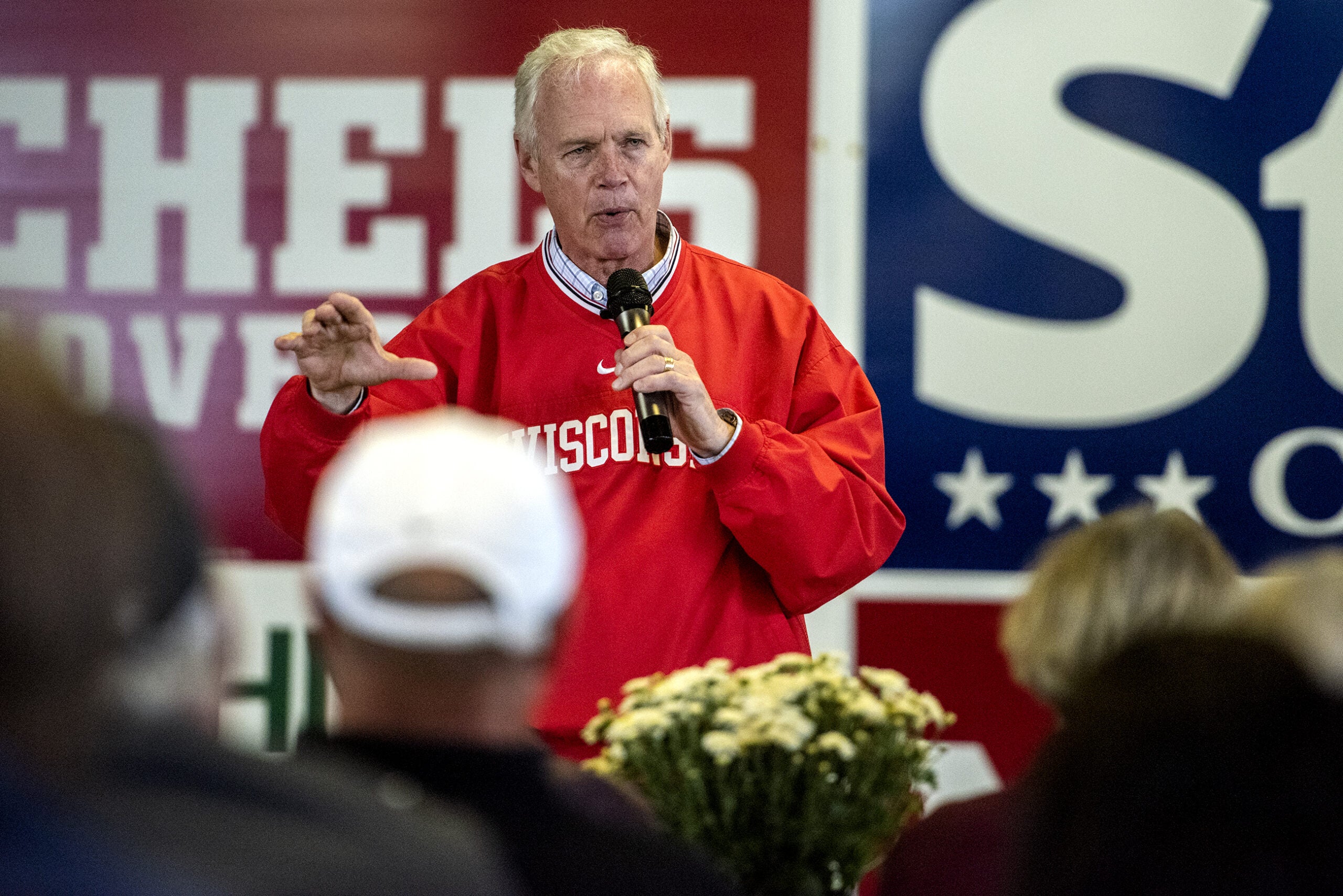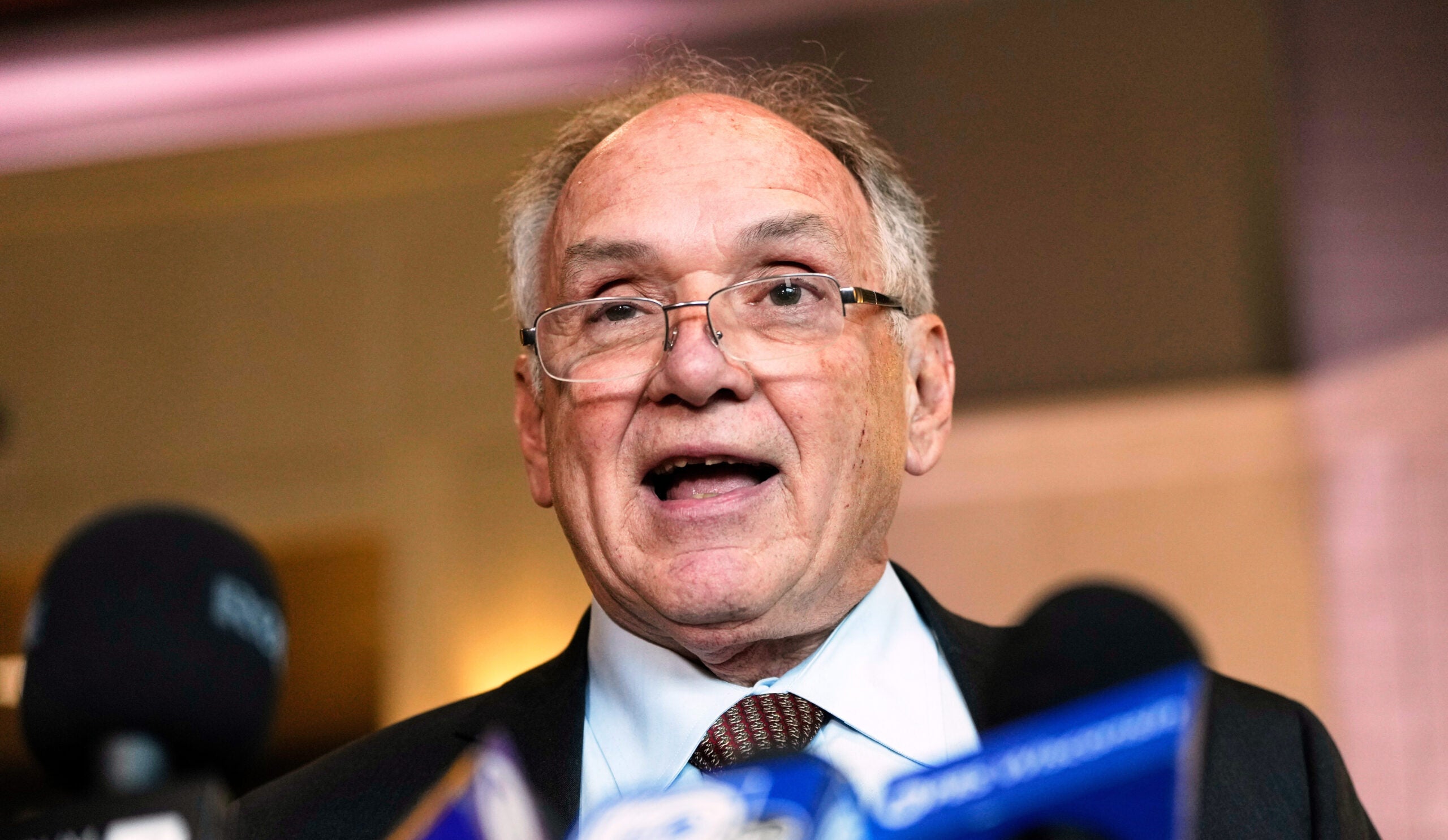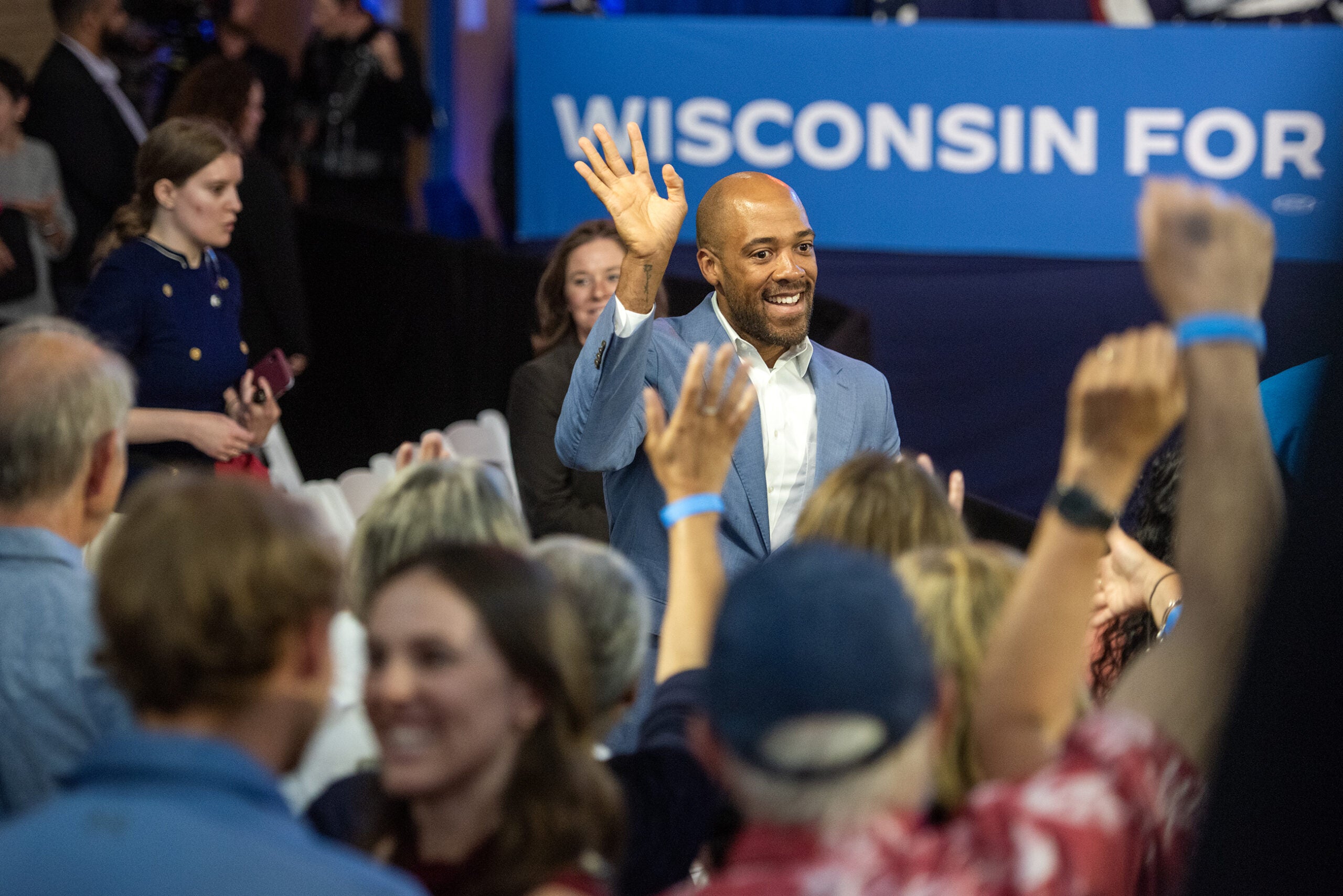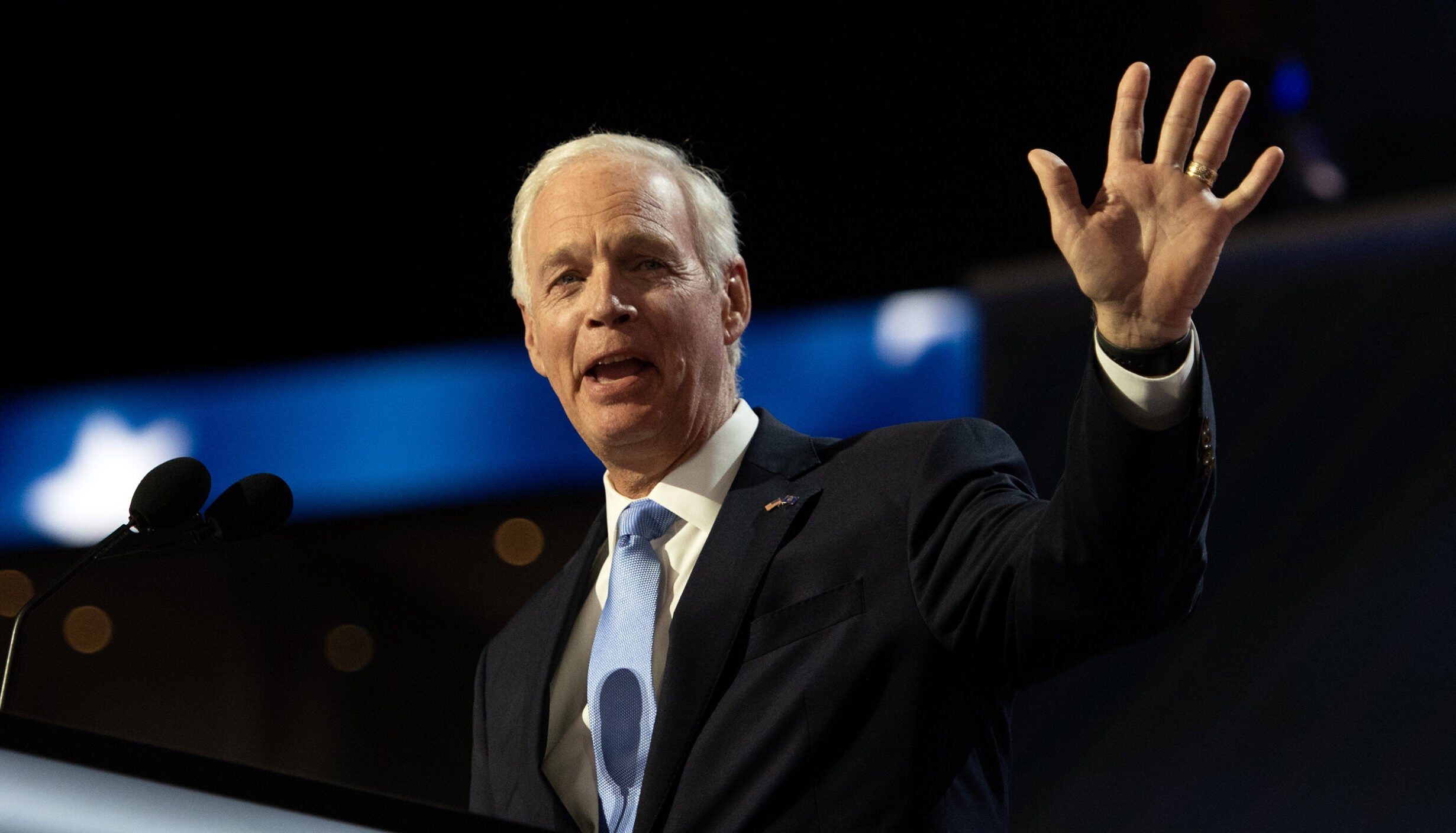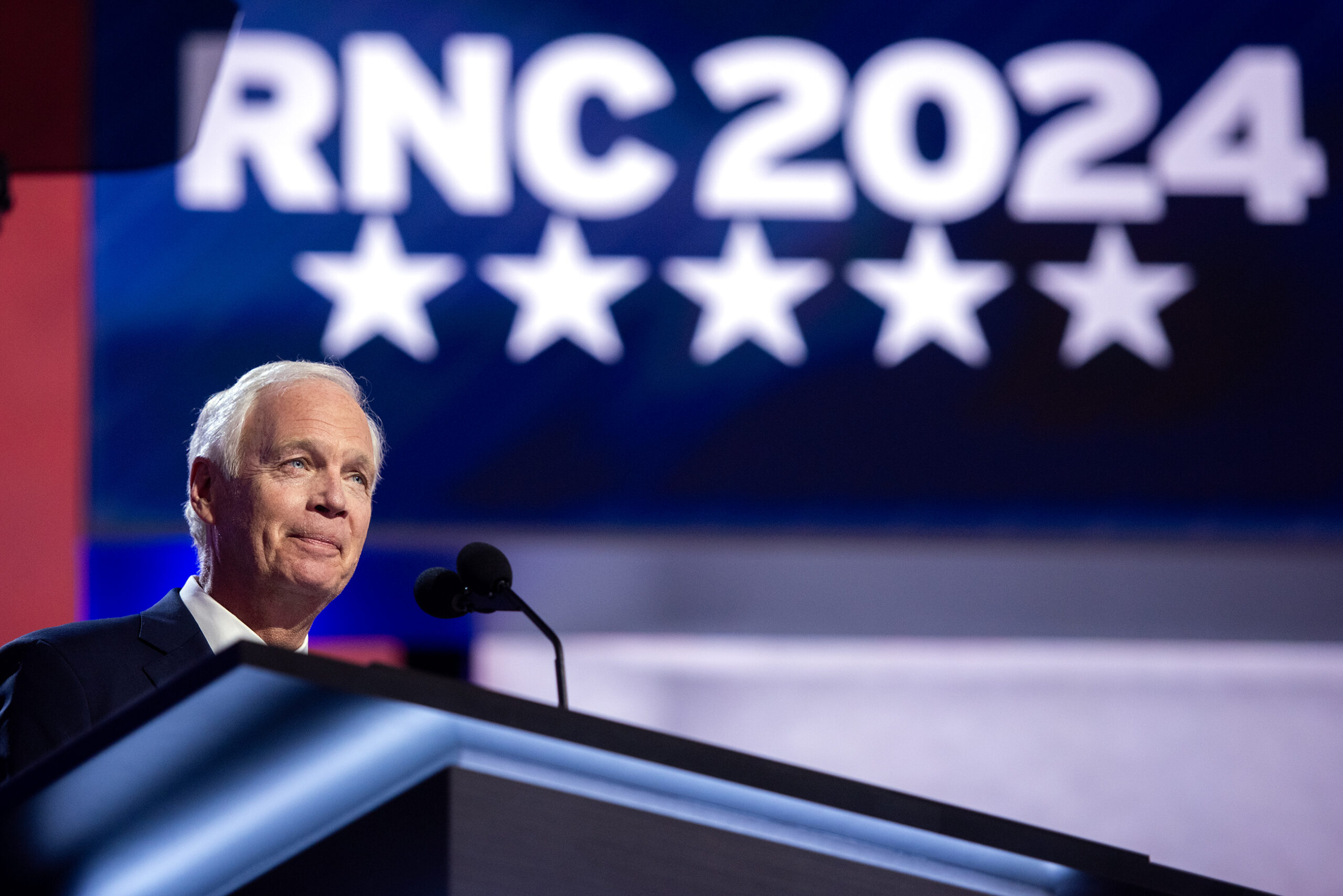There are different ways to run campaigns in a 50-50 state like Wisconsin.
There’s the cautious approach. And then there’s the one being taken by Republican U.S. Sen. Ron Johnson.
At a gathering of a couple hundred Republicans at the Racine County Fairgrounds pavilion last month, Johnson delivered what sounded — momentarily — like a typical swing state speech. He called for unity. And he said Republicans want to “heal” the nation.
News with a little more humanity
WPR’s “Wisconsin Today” newsletter keeps you connected to the state you love without feeling overwhelmed. No paywall. No agenda. No corporate filter.
“Aren’t you getting tired of the division and the anger?” Johnson asked.
But Johnson immediately pivoted.
He accused Democrats of purposely driving up the cost of gas “to force you into an electric vehicle.” Johnson blamed Democrats for inflation, saying it amounted to “stealing” people’s savings. And he said progressives, like Democratic challenger Mandela Barnes, wanted to fundamentally change America for the wrong reasons.
“They don’t particularly like this country,” Johnson said. “They just don’t.”
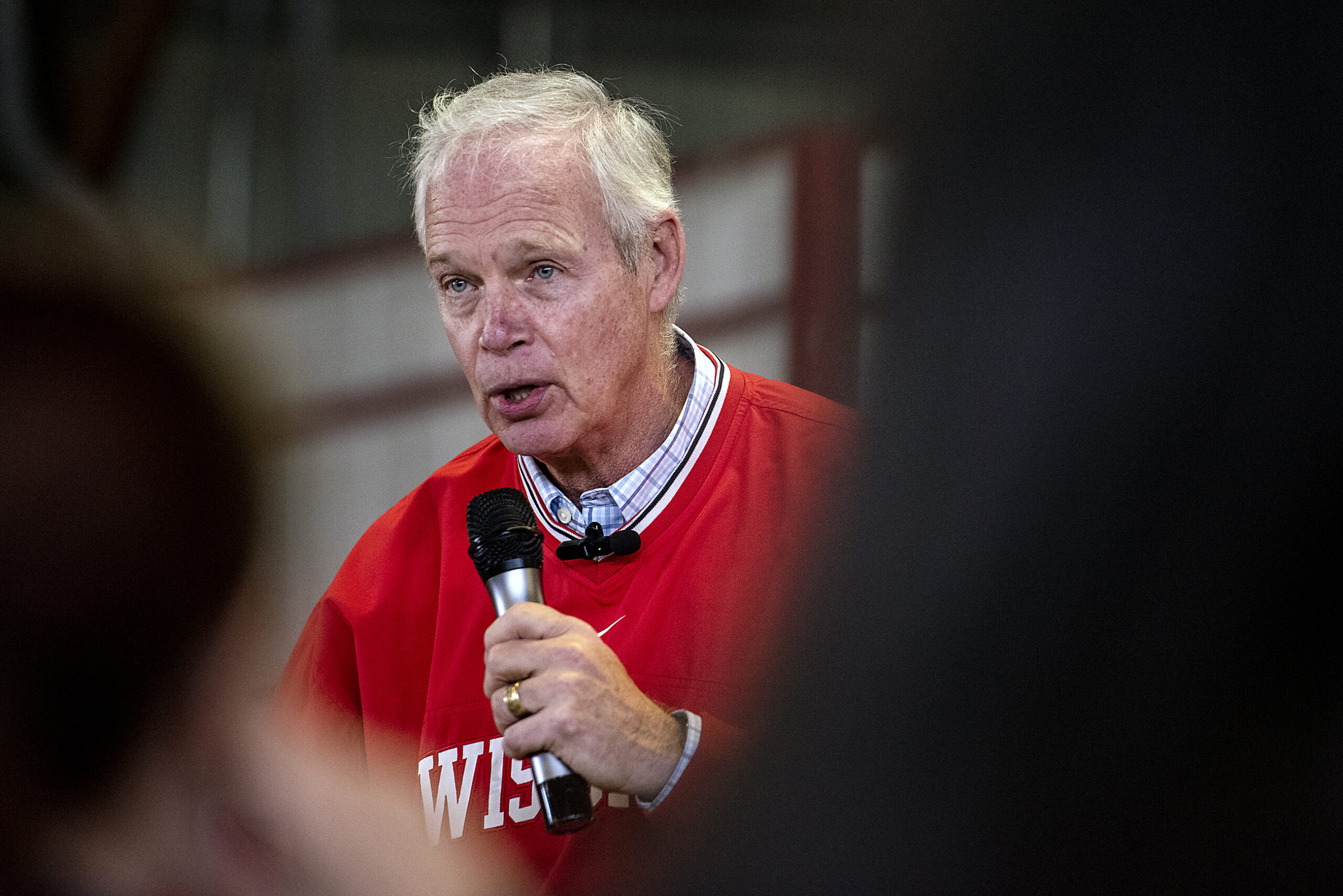
Johnson’s controversial approach has worn thin with some Wisconsin voters, based on years of polling by the Marquette University Law School. In recent years, a growing number of voters have held a negative view of Johnson.
But the crowd at this Union Grove rally fed off of Johnson’s remarks. They cheered and jeered as Johnson attacked the Democratic Party and blamed the media for carrying their water.
In the crowd that day for Johnson’s speech was Rich Strohm, a Republican living near Burlington. He said Johnson isn’t “your ordinary politician,” and he appreciates that the senator stands up for what he believes.
“He doesn’t give the politically correct answers all the time,” Strohm said. “He does state things the way they are, and he gets beat up a lot. And sometimes it’s not the things Republicans want to hear. But he speaks what’s on his mind, whether it’s popular or not.”
Johnson rode the 2010 Republican wave to the U.S. Senate as a citizen legislator who vowed to bring private-sector common sense to Washington D.C. He defeated former Democratic U.S. Sen. Russ Feingold twice, attacking him as a career politician.
In 2016, Johnson promised his second term would be his last. But he announced a bid for a third term earlier this year, saying “America is in peril.” His campaign has gained national attention for comments and actions seen not only as controversial, but also sometimes conspiratorial.
Despite Wisconsinites’ negative views of Johnson, he’s pulled ahead of Barnes in multiple surveys of voters this month. Scott Jensen, a Republican lobbyist and former speaker of the Wisconsin Assembly, said Johnson’s polling isn’t the only key to winning re-election.
“Ron Johnson may not be able to improve his numbers,” Jensen said. “But he can dramatically reduce Mandela Barnes’ numbers.”
Johnson undermined COVID-19 vaccine push, downplays Jan. 6 insurrection
When the COVID-19 pandemic hit the U.S. in 2020, Johnson was a proponent of drugs like hydroxychloroquine and Ivermectin as early treatment options.
That June, federal regulators revoked an emergency use authorization for hydroxychloroquine, citing data showing it was “unlikely to be effective” in treating infections. Former President Trump’s administration turned to Johnson in an unsuccessful effort to secure reauthorization.
The Senator later told fellow COVID vaccine skeptic Del Bigtree of the Highwire he was frustrated by resistance to early treatment options from National Institute of Allergy and Infectious Diseases Director, Dr. Anthony Fauci, and former White House Coronavirus Task Force Coordinator Dr. Deborah Birx and later backed off.
“And, you know, quite honestly, I wanted to make sure that President Trump got reelected,” Johnson said. “And I didn’t want to get too overly critical of his administration.”
Johnson has become a leading skeptic of COVID-19 vaccines. He organized a roundtable discussion with people who said they’d suffered adverse reactions to the shots. Public health officials slammed the event, saying Johnson’s motives should be questioned. And throughout 2021, Johnson made false or misleading claims about the vaccines at public appearances.
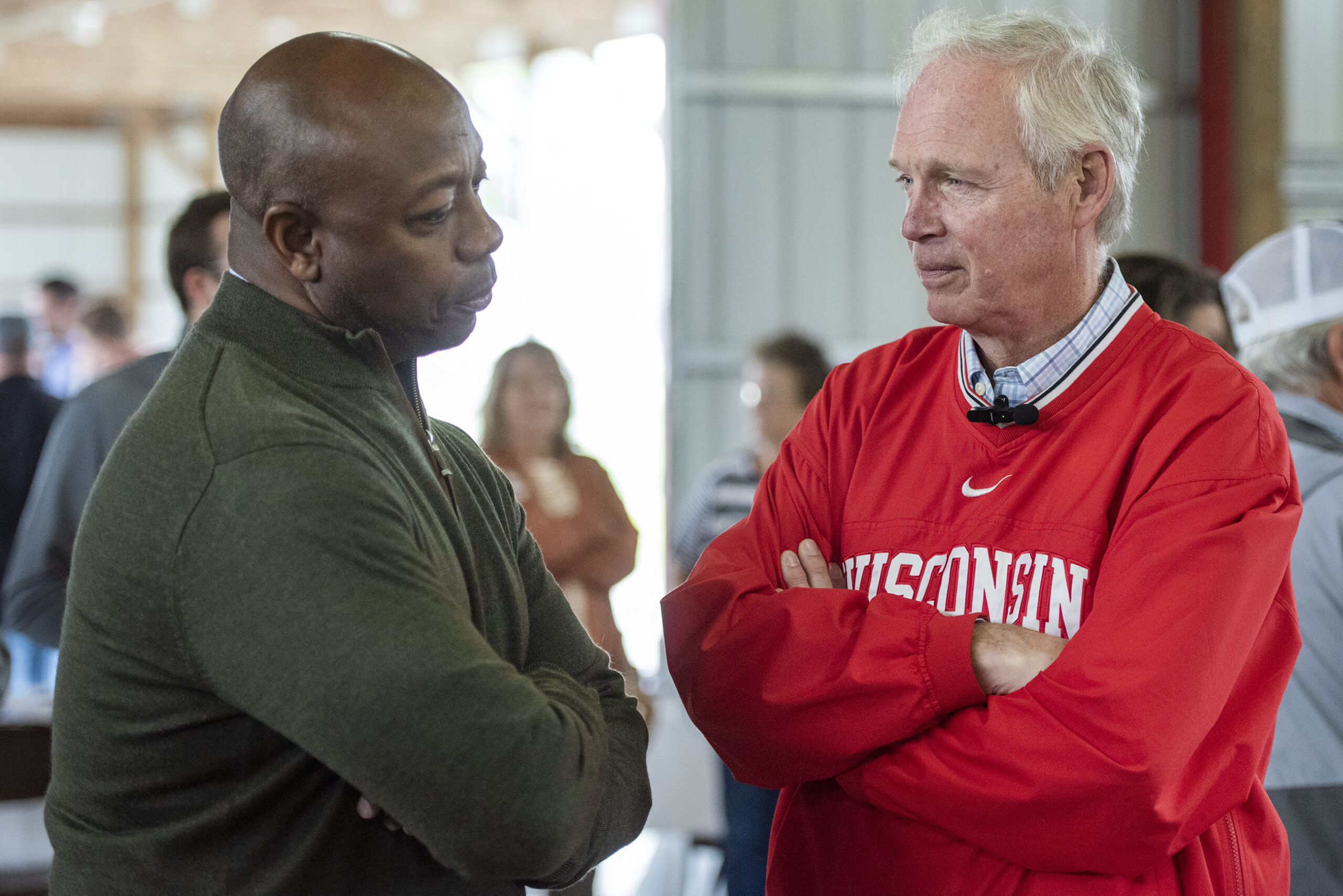
But public health is not the only subject on which Johnson is a dissenting, controversial voice.
Ahead of the deadly Jan. 6, 2021 riots at the U.S. Capitol, Johnson announced he would join a group of 10 Republican Senators planning to object to certifying Electoral College results confirming Democrat Joe Biden’s win. Johnson withdrew his objections after the Capitol had been ransacked.
He has referred to the crowd that rallied in Washington that day as “jovial” and “friendly.” Last week the Milwaukee Rotary Club, Johnson said calling the attack on the Capitol an armed insurrection is inaccurate because no guns were seized. Police radio traffic that day indicated people on and near the Capitol grounds were armed with pistols and AR-15 rifles.
This June, the Select Committee to Investigate the January 6th Attack on the U.S. Capitol released text messages from Johnson’s former chief of staff showing the Senator wanted to hand over a slate of fake electors from Michigan and Wisconsin to former Vice President Mike Pence. One of the fake electors from Wisconsin, Pam Travis, works for Johnson’s re-election campaign.
Johnson initially struggled to explain his involvement with the fake elector scheme, ultimately claiming he only introduced a Trump lawyer and his staff via text messages and his involvement only lasted a few seconds.
Johnson’s actions have angered Democrats who think they go beyond controversial or “politically incorrect.”
Longtime Democratic strategist and former Wisconsin Senate Majority Leader Chuck Chvala said he believes America is at an inflection point, and Johnson has enabled Trump and others seeking to overturn the 2020 election.
“He is not the one strategizing to make it happen, but he will help them make it happen,” Chvala said. “That is a terrible danger for our democracy. And his actions with regard to Jan. 6, his actions with regard to saying this was not an insurrection, give direct evidence that he is a person who is ready to let us go to autocracy. And that is a danger zone for Wisconsin and for the country.”
Attack ads against Johnson’s Democratic opponent are working
But while Johnson’s comments on COVID-19 and the insurrection anger Democrats, in the Senate campaign they’ve focused their attacks elsewhere.
Soon after Lt. Gov. Mandela Barnes won the Democratic primary for U.S. Senate in August, his campaign and Democratic groups tried to define Johnson as an out-of-touch millionaire and political insider who doubled his wealth while in the Senate.
They also portrayed him as bent on cutting Medicare and Social Security by making it subject to annual funding votes in Congress. Johnson has said he wants to save Social Security and Medicare and that the greatest threat to the programs is the nation’s growing deficit.
More recently, the Barnes campaign and Democratic allies have focused on abortion and highlighted Johnson’s support of the U.S. Supreme Court’s decision overturning Roe v. Wade. The ruling reinstated Wisconsin’s 1849 abortion ban.
In response, Johnson has said the abortion ban should be changed to allow women who are victims of rape or incest to have abortions. He called for a “direct referendum” on the issue, a process that’s not allowed under the Wisconsin Constitution.
Democratic Gov. Tony Evers, who is also up for re-election, seized on Johnson’s recommendation and called for a special session of the state Legislature to allow for citizen ballot initiatives. Johnson then backtracked, accusing Evers of trying to politicize the abortion issue.
“I’m trying to take politics out of this,” Johnson told Wisconsin Public Radio at a campaign event. “This election, there’s so many things we have to worry about.”
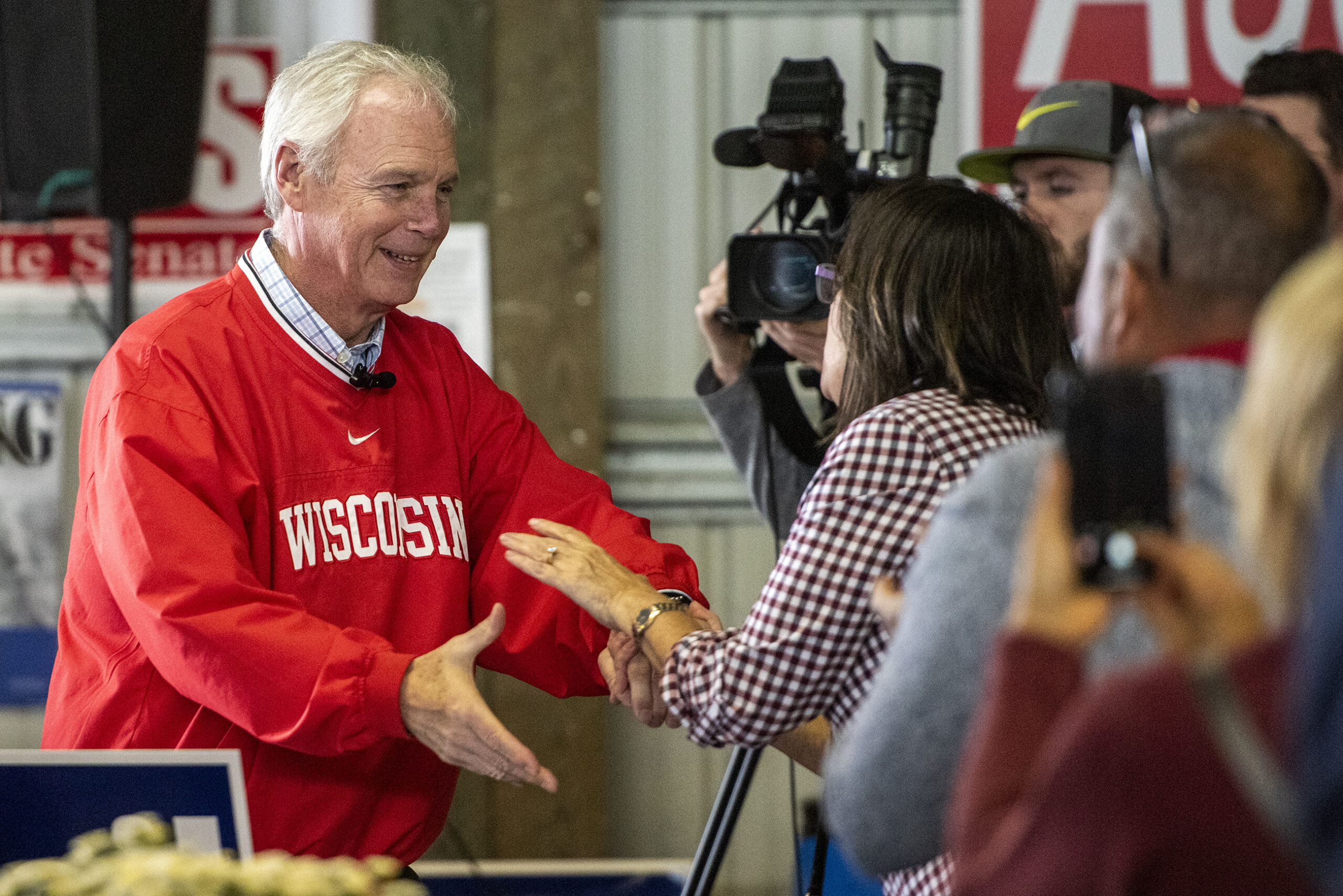
While Johnson often finds himself on the defensive, political observers say he’s been the one dictating the terms of his campaign against Barnes.
Johnson’s campaign and Republican groups have spent tens of millions of dollars attacking Barnes with claims that he supports defunding the police and cutting Wisconsin’s prison population in half. Barnes has disputed the police claims but has previously supported cutting the state’s prison population in half.
Democrats have also said the attacks by outside groups against Barnes, who is Black, have included racist appeals and stereotypes. Johnson’s campaign has called the accusation an attempt to distract from Barnes’ record.
The ads appear to have had an impact. Following the August primary, the Marquette Law School poll showed Barnes leading Johnson by 14 percentage points among independent voters. By September, Barnes’ lead among independents dissolved into a two point deficit. And among all voters, poll after poll in September showed the race swinging toward Johnson.
Jessica Taylor, who follows U.S. Senate races around the country for the Cook Political Report, said Johnson’s campaign and his conservative allies have been successful in part because Barnes was relatively unknown prior to the August primary. She said that strategy appears to have offset Johnson’s low favorability ratings.
“Even if they dislike the Senator,” Taylor said, “there are clearly people that are still going to be voting for him regardless.”
Editor’s note: This story is part of WPR’s series on the election. Read our profile of Democratic U.S. Senate candidate Mandela Barnes here.
Wisconsin Public Radio, © Copyright 2025, Board of Regents of the University of Wisconsin System and Wisconsin Educational Communications Board.

